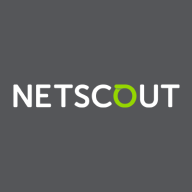


Arbor DDoS and Kentik compete in the network security and monitoring category. Based on data comparisons, each solution demonstrates strengths in unique areas, depending on specific use cases and customer preferences.
Features: Arbor DDoS is recognized for its effective mitigation techniques, detailed traffic analysis, and strong adaptability to customer needs. Its user-friendly interface and easy deployment make it suitable for various environments, including on-premises and hybrids. Kentik's robust SaaS offerings provide comprehensive flow data analysis and real-time network visibility, appealing to users for its flexibility in working without additional hardware, making it a cost-efficient choice.
Room for Improvement: Arbor DDoS faces criticism for occasionally blocking legitimate traffic, indicating a need for improved machine learning and AI integration. Users highlight its user interface and auto-mitigation processes as areas for more intuitiveness, alongside calls for enhanced scalability and integration. Kentik users suggest refining actionable insights and API usage while seeking improvements in its newer platform versions to maintain ease of use.
Ease of Deployment and Customer Service: Arbor DDoS offers versatile deployment options, such as on-premises and hybrid setups, with highly rated technical support, though sometimes slow in response. Kentik is praised for private cloud deployments and real-time visibility, excelling in scalability. However, it could enhance tech support for promptly managing complex demands, albeit the team's expertise is acknowledged.
Pricing and ROI: Arbor DDoS is considered expensive, justified by its extensive feature set and effectiveness, but users report significant ROI due to network uptime maintenance. Kentik's pricing, seen as more budget-friendly, offers flexible SaaS solutions suited for scalable needs. Arbor's pricing reflects an investment in comprehensive protection, whereas Kentik is recognized for cost-effective insights and management solutions.
WordPress security can be tricky, and that's where Cloudflare can be absolutely helpful for small businesses.
For the small project I was working on, using the basic tier provided a huge improvement at zero cost.
In terms of return on investment with Cloudflare, it costs my time to set them up, but basically once they're set up, it's done.
In production environments, especially for service providers on IP networks and data centers, Kentik helps in reducing the time to identify and resolve issues.
This would help us address issues promptly, especially during unforeseen events like DDoS attacks.
Cloudflare does not offer hands-on technical support to fix customer problems but rather a self-service model.
The key factor is the language in which the support is offered, which, in this case, is in Thai.
The technical support team is very effective in resolving issues.
Although the team is good, they are not fast, and they lack the skills to manage dynamic attackers.
Support for Arbor DDoS deserves a rating of 10 because when there is a problem with implementation, the people I work with are the best.
I have mostly used forums for any support needed because the setup is straightforward and the documentation is quite good.
They have monthly calls and discuss the product roadmap with us to determine what is needed.
It is a SaaS tool, but the fact that they have workloads deployed across the world proves that it is a highly scalable tool.
The tool offers very good performance, even during high-traffic periods.
I rate the solution’s scalability an eight out of ten.
This would enhance the knowledge about scalability options available for Arbor DDoS, making it more accessible and useful for users.
They need to purchase boxes monthly to expand their bandwidths, and these new boxes can be added to the installed base very easily.
I find Arbor DDoS to be very scalable.
Kentik's integration with Kubernetes makes scaling easier.
You can scale as many devices and tests as you want, but you should have a good number of credits in your accounts.
For DDoS protection, I would not recommend Cloudflare.
I rate the solution’s stability an eight out of ten.
The service is very stable with no impacts during high-traffic periods.
It is a very stable product.
Arbor DDoS is very stable.
In production, however, dimensioning of the underlying platforms is something to be mindful of.
Based on stability, I would give Kentik a nine.
There's a need for improvement in areas like AI-based DDoS attacks and Layer 7 WAF features.
Despite these challenges, overall, Cloudflare remains the preferred solution compared to Azure, AWS CloudFront, and Google Cloud Armor.
The timing aspect can lead to it being considered overpriced. This is a particular concern we have with Cloudflare, as they may struggle with accurately detecting the client.
I would like to see an option to decrypt the traffic with Arbor DDoS, as some clients are interested in this, particularly for application layer attacks on port 443.
Enhancing the handshakes between Arbor DDoS and third-party solutions is essential for obtaining better and real-time data that supports any organization’s support team effectively.
I would like to see a roadmap for one or two years, and it is tough to predict what will happen in that timeframe without a clearer description.
More work is required to integrate AI for troubleshooting, simplifying root cause analysis, and providing suggested solutions for network issues.
That's where Cloudflare shines for smaller businesses – it's ten times cheaper than Akamai.
I find it to be cheap.
I think they should consider reevaluating the pricing for support, as it can be quite high.
The prices for Arbor DDoS are expensive.
For some customers, the cost is expensive, but for enterprises looking to protect their services, it is affordable.
The pricing is good and aligns with the market target.
Kentik’s pricing is competitive in the marketplace.
The most valuable features of the solution are performance and security.
Techniques like minification and image compression reduce the size of assets, leading to better performance and faster user load times.
The solution has been able to compare it to the market, and I think the product has taken great strides in automating quite a bit of things, and they use a lot of AI.
That is an attack over 10 gigabit per second, and if an attack enters the telecommunication network, that will be a disaster for their customer, their services, and so on.
We have many updates for the library of different attacks, and they have artificial intelligence that automatically learns the process during different attacks.
The platform offers quick mitigation of attacks because Arbor DDoS uses BGP Flowspec, enabling very quick mitigation.
The most important feature is cybersecurity.
One of the most valuable features of Kentik, especially for service providers, is its ability to visualize all the BGP peering and the status of the BGP peering platform.
Kentik is easy to use and set up.
| Product | Market Share (%) |
|---|---|
| Cloudflare | 18.8% |
| Arbor DDoS | 11.4% |
| Kentik | 0.7% |
| Other | 69.1% |



| Company Size | Count |
|---|---|
| Small Business | 46 |
| Midsize Enterprise | 8 |
| Large Enterprise | 25 |
| Company Size | Count |
|---|---|
| Small Business | 25 |
| Midsize Enterprise | 13 |
| Large Enterprise | 29 |
| Company Size | Count |
|---|---|
| Small Business | 4 |
| Midsize Enterprise | 3 |
| Large Enterprise | 8 |
Cloudflare is a highly-regarded Content Delivery Network (CDN) and a Distributed Denial-of-Service (DDoS) protection solution. The robust global connectivity cloud platform that is Cloudflare ensures users are able to connect to the Internet quickly, securely, and reliably. Cloudflare is one of the world's largest networks in the marketplace today. Using Cloudflare, businesses, educational entities, NGOs, vloggers, bloggers, and anyone else with an internet presence can experience more secure, faster websites and applications.
Currently, there are millions of Internet locations on Cloudflare, and the Cloudflare network
continues to grow every day by the thousands. The solution is able to fulfill the requests for
millions of websites seamlessly and serves on average 45 million HTTP requests per second.
Cloudflare has safe, secure data centers in close to 300 cities worldwide to ensure every
client request is filled as quickly as possible. It is Cloudflare’s edge network that makes this
possible by keeping content and other services as close to each client as possible, so the
information requests are always only seconds away.
Many organizations that work in democracy, civil society, human rights, or the arts are able to
access Cloudflare's highest levels of protection for free via Project Galileo. Additionally, official
election websites can be secured from hacking and fraud through Cloudflare’s Project
Athenian, also at no additional cost.
Cloudflare can also help organizations of all sizes develop a robust zero-trust strategy to
ensure the highest levels of productivity and profitability. Employees, stakeholders, and end users have a greater level of satisfaction and overall improved user experience, which can, in
turn, result in higher revenues and overall ROI. Zero-trust and BYOD (bring your own device)
access ensure end users and employees always have the best resources and technology
available to them at all times.
Cloudflare benefits
Cloudflare has many benefits. Some of its most valuable benefits include:
- Faster load times
- Robust DNS security
- Intuitive cloud Web Application Firewall (WAF)
- Free universal SSL
- Image enhancement
- Automatic browser caching
- Next-generation cloud load balancer
- Accelerated Mobile Pages (AMP)
- Rate limiting
- Minification
- Zero-trust capabilities
- Cost-effective
- Reduced carbon footprint
Reviews from real users
“Many websites require an SSL certificate because they sell stuff and want SSL. Cloudflare
comes with an SSL certificate built in. It's automatic. You sign yourself up for Cloudflare, and
an SSL certificate automatically protects your website. If you have a connection between your
website and your host, the server, Cloudflare, and the host, you don't necessarily need a
certificate.” Spencer M., Owner at Tech Exchange
“What I like best about Cloudflare is that my company can use it to trace and manage
applications and monitor traffic. The solution tells you if there's a spike in traffic. Cloudflare
also sends you a link to check your equipment and deployment and track it through peering,
so it's a valuable tool.” Daniel P., Network Engineer at Ufinet
“The most valuable feature of Cloudflare is the GUI. You are able to control the solution very
well through the interface. There is a lot of functionality that is embedded in the service.” PeerSpot user, Competence Center Manager at a tech services company
Arbor DDoS provides effective mitigation against DDoS attacks with a user-friendly interface, integrating cloud and on-premise solutions for real-time traffic control and reporting. It supports large traffic volumes without latency, making it ideal for protecting online infrastructure.
Known for its intuitive GUI and rapid response, Arbor DDoS defends against complex DDoS threats using AI-driven anomaly detection and traffic categorization. It offers packet capture, robust reporting, and deployment flexibility, helping users maintain network stability and performance. While improvements in auto-mitigation, interface modernization, and scalability are needed, its hybrid protection approach efficiently secures networks for service providers and enterprises.
What are the key features of Arbor DDoS?Internet Service Providers and managed service providers utilize Arbor DDoS to secure network infrastructure and service availability. It's implemented in government and finance sectors for safeguarding customer websites and managing server traffic thresholds. Organizations deploy Arbor DDoS both on-premise and via cloud for extensive network protection.
Kentik's AIOps Network Traffic Intelligence platform unifies network operations, performance, security, and business intelligence.
With a purpose-built big data engine delivered as public or private SaaS, Kentik captures a high-resolution view of actual network traffic data and enriches it with critical application and business data, so every network event or analysis can be tied to revenue & costs, customer & user experience, performance & risk.
We monitor all Distributed Denial-of-Service (DDoS) Protection reviews to prevent fraudulent reviews and keep review quality high. We do not post reviews by company employees or direct competitors. We validate each review for authenticity via cross-reference with LinkedIn, and personal follow-up with the reviewer when necessary.